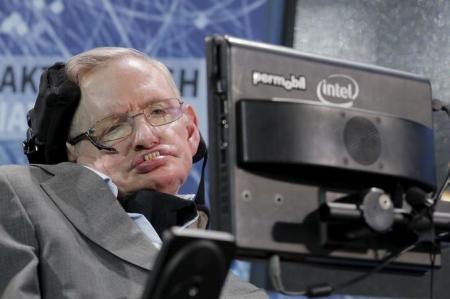Stephen Hawking to Be Buried at Westminster Abbey, Dean of Church Hails Unity of Science, Religion

Stephen Hawking, one of the world's most renowned physicists who died at 76 last week, will be interred in one of the holiest sites of the Church of England later this year.
Westminster Abbey, which serves as the coronation and burial site for British monarchs and other major figures, announced Tuesday that Hawking's ashes will be interred near the grave of Sir Isaac Newton.
"It is entirely fitting that the remains of professor Stephen Hawking are to be buried in the Abbey, near those of distinguished fellow scientists. Sir Isaac Newton was buried in the Abbey in 1727," said the Very Rev. John Hall, the dean of Westminster, in a statement.
"Charles Darwin was buried beside Isaac Newton in 1882. Other famous scientists are buried or memorialized nearby, the most recent burials being those of atomic physicists Ernest Rutherford in 1937 and Joseph John Thomson in 1940," Hall added.
"We believe it to be vital that science and religion work together to seek to answer the great questions of the mystery of life and of the universe."
The scientists mentioned professed various and often unclear religious beliefs.
Newton, for instance, was a believer in God, and reportedly a member of an Anglican church, though fell outside mainstream Christianity as he disputed the Trinity.
Darwin, on the other hand, who famously wrote On the Origin of Species in 1859, which sparked the teachings on evolution, is believed to have migrated from being an Anglican Christianity to agnostic.
Hawking's beliefs, or lack thereof, have been made clearer in his statements throughout the years.
The theoretical physicist, cosmologist, and author has said that he was "not religious in the normal sense," and that the universe "is governed by the laws of science."
In 2011 he told the TV program "Curiosity" that the "simplest explanation" for him is that there is no God.
"No one created the universe and no one directs our fate. This leads me to a profound realization. There is probably no Heaven, and no afterlife either. We have this one life to appreciate the grand design of the universe, and for that, I am extremely grateful," he said at the time.
In a 2014 interview with NBC he said that he is an atheist, proclaiming: "Before we understand science, it is natural to believe that God created the universe. But now science offers a more convincing explanation. What I meant by 'we would know the mind of God' is, we would know everything that God would know, if there were a God, which there isn't."
Hawking, who at age 21 was diagnosed with the crippling disease ALS, which in the United States is often called Lou Gehrig's disease, was given two to three years to live, but he survived to the age of 76.
Major conservative Christian leaders responded to the physicist's death last week. Franklin Graham, president of Samaritan's Purse and the Billy Graham Evangelistic Association, wrote on Facebook:
"I wish I could have asked Mr. Hawking who he thought designed the human brain. The designers at HP, Apple, Dell, or Lenovo have developed amazing computers, but none come even close to the amazing capabilities of the human mind. Who do you think designed the human brain? The Master Designer — God Himself."
Graham added: "I wish Stephen Hawking could have seen the simple truth that God is the Creator of the universe he loved to study and everything in it."





















